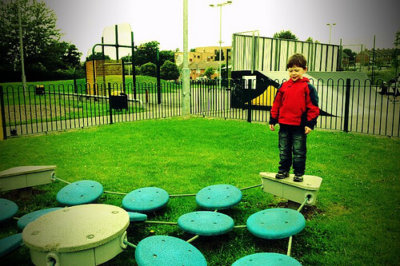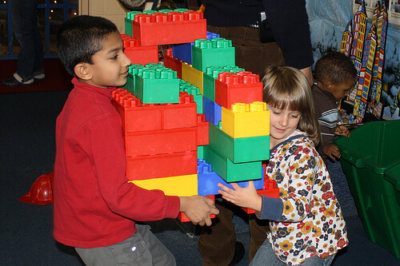12 Ways to Raise Independent Children
Most parents love and enjoy their children and want only the best for them.
But in the last few decades things have not always gone according to plan. The rise of over-parenting has lead to a generation that seems allergic to independence.
[Read our connected piece on “the Rise of Helicopter Parenting“].
The good news is that the same experts who’ve identified the unintended consequences of over-parenting have also identified practical methods that will nourish self-confidence.
12 Ways to Raise an Independent Child
1. Praise well, but wisely.
Praise is a confidence builder, but only if it’s earned and genuine. While it’s good to praise a child the first time he or she succeeds at something, indiscriminate or over-the-top praise leaves the child with no yardstick to measure achievements by.
2. Assign age-appropriate responsibilities and tasks.
Professors often describe today’s students as intellectually accomplished but devoid of life skills. Start with simple tasks like picking up toys, and increase responsibilities for self-care, household chores, homework and the like as the child grows.

By: Beckie
3. Recognise that not everyone is good at everything.
Help your child recognise his or her weaknesses as well as strengths. Not only will this foster a healthy, realistic sense of self, it will lead to appreciation for, and acceptance of, others.
Seeing oneself as King of the Hill is fine in a game, but it doesn’t build social skills.
4. Step back.
Give your child a chance to solve problems by himself. If something is still beyond his or her scope, don’t take over but turn it into a learning experience with a “let’s figure it out together” approach.
5. Allow your child to experience frustration, disappointment, and rejection – they are part of life.
Nothing is as heart-wrenching as watching your child failing to get picked for a team or being shut out by playmates. But rushing in to make things all better only exaggerates the importance of such events. Neither turn an ordinary occurrence into a national disaster nor ignore it. Instead, offer enough support to help your child bounce back but develop emotional resilience.
6. Teach them that mistakes and failure as part of life.
Help your child understand that making mistakes and failing aren’t the end of the road but steps along the way.
When repeated tries lead to success, don’t just praise the achievement but the process that led to it, with words like, “I’m proud of you – you really stuck with it until you did it!”
7. Build social skills.
No man – or child – is an island, and no life is complete without friends to care for and count on. Fostering social skills like courtesy, sharing, empathy, helping others and asking for help when needed will lay the groundwork for a lifetime of sound relationships.
8. Look ahead.
Is your child avoiding consequences? Always counting on others to take the lead? Prone to blaming others when thing go wrong? If you are tempted to overlook or sugarcoat it, ask yourself if his or her behaviour will work for or against them in adulthood. Then redirect the behaviour by encouraging your child to take responsibility for his or her actions.
9. Give opportunities for unstructured play.
Free time allows children to discover and cultivate their own interests, develop skills, and work independently. Ask any teacher – a self-directed student with learn more, get better grades, and be happier in class than one who needs constant green-lighting from an adult.
10. Let your child make some of the decisions.
Letting children make their own choices and take low-consequence risks will develop decision-making skills needed later in life.
If something doesn’t work out the way your child hoped, discuss why and suggest ways a different choice might work better next time. This can also help with goal setting and delay of gratification, as in, “If you don’t spend your money on ice cream today, you will have enough to buy the toy you want next week”.
11. Don’t always be there.
We’ve all seen that look across a crowded room — Mom! Help! It may be a sudden bout of shyness, a tussle over a toy, or the challenge of a new task. But when mom’s not around, most children rise to the occasion and resolve the problem with no help at all.
Look for environments that are safe but require appropriate levels of independence. Pre-school, organised sports, day camp, and summer camp all give children chances to navigate the world on their own.
12. Examine your own motives.
When you feel the urge to jump in on your child’s behalf, ask yourself, why? Is it really for your child’s benefit? Are you conforming to parenting trends you don’t really embrace? Eager for the approval of other parents?
Does your daughter really want to dance the part of the Sugar Plum Fairy or are you, a perpetual member of the chorus line, pushing her to fulfil your childhood dreams?
And if at First You Don’t Succeed?
Don’t overlook reaching out for help. Parenting can be enormously stressful and confusing and challenge the best of us. If you need support, consider the help of a counsellor, or even family therapy where a therapist can work with both you, your child and other members together to help with communication and encourage healthy dynamics.
Do you have a tip for raising an independent child that we’ve missed? Let us know below.






